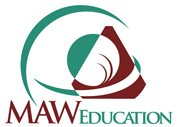English Formative Assessments
This booklet is available in Hard Copy, as a PDF and you can also find it on Kindle.
Formative Assessment Ideas
If you need to plan a formative assessment for an initial home visit before children begin school, check out our book, “Formative Assessment Ideas”. This 24-page book also provides ideas for continuous and comprehensive evaluation throughout the student’s school life and thoughts about how to improve standards in their final examinations. Get in touch today and discover a useful reference book for all busy teachers.
Assessing Students and Teaching
As part of our services, our education consultants provide formative assessment ideas.
Contents
Formative Assessment – Assessment for Learning
- The Home Visit or the Child’s Initial Visit to School – Learning Starts When We Are Born – What Does the Child Already Know When She First Comes to School?
- Assessment through Observation – Discover Students’ Multiple Intelligences and Their Strengths and Weaknesses
Diagnostic Assessments
- Published Diagnostic Tests – Subjects and Verbal Reasoning
- Students with Additional Needs (Special Educational Needs) – Examples
- Group Assessment – Assess Students’ Multiple Intelligences Using a Rubric
- Authentic Problem Solving and Assessment – Expert Assessment of Real-Life Situations
- Students’ Self-Assessment and Peer Assessment – Let Your Students Help You
- Multiple Intelligences Assessment of Knowledge, Skills, Understanding, and Attitudes
- Creating Your Own Subject-Specific Assessments (Example: English Novel)
- End of Lesson Evaluation – to Help You Plan for the Next Lesson
- Target Setting and Monitoring – Use Assessment to Raise Standards and Set Goals
Summative Assessment- Test and Assessment Results
- Continuous and Comprehensive Assessment – Leading to Accumulative Assessment
- End of Topic Assessment – Recording Students’ Knowledge, Skills, Understanding, and Attitudes
Accumulative Assessment
- Tests and Examinations – Assessment against Criteria Laid Down in the Syllabus
- Different Ways of Assessing – Assessment through Different Tasks
- Collating the Evidence – Tracking Software and a Process Folio – Collecting Evidence and Recording Progress
- Using Assessment to Raise Standards – International Benchmark Tests
Conclusion – Assessment Leading to Planning for the Differentiated Classroom
Also Available in the Changing Education Series
Coming Soon
Future booklets include
- Information Technology: Teaching and Learning for the Digital Age
- Teaching English as an Additional Language: Multiple Intelligences Ideas
- Pre-School: Teaching and Learning Ideas for the Under-Fives
